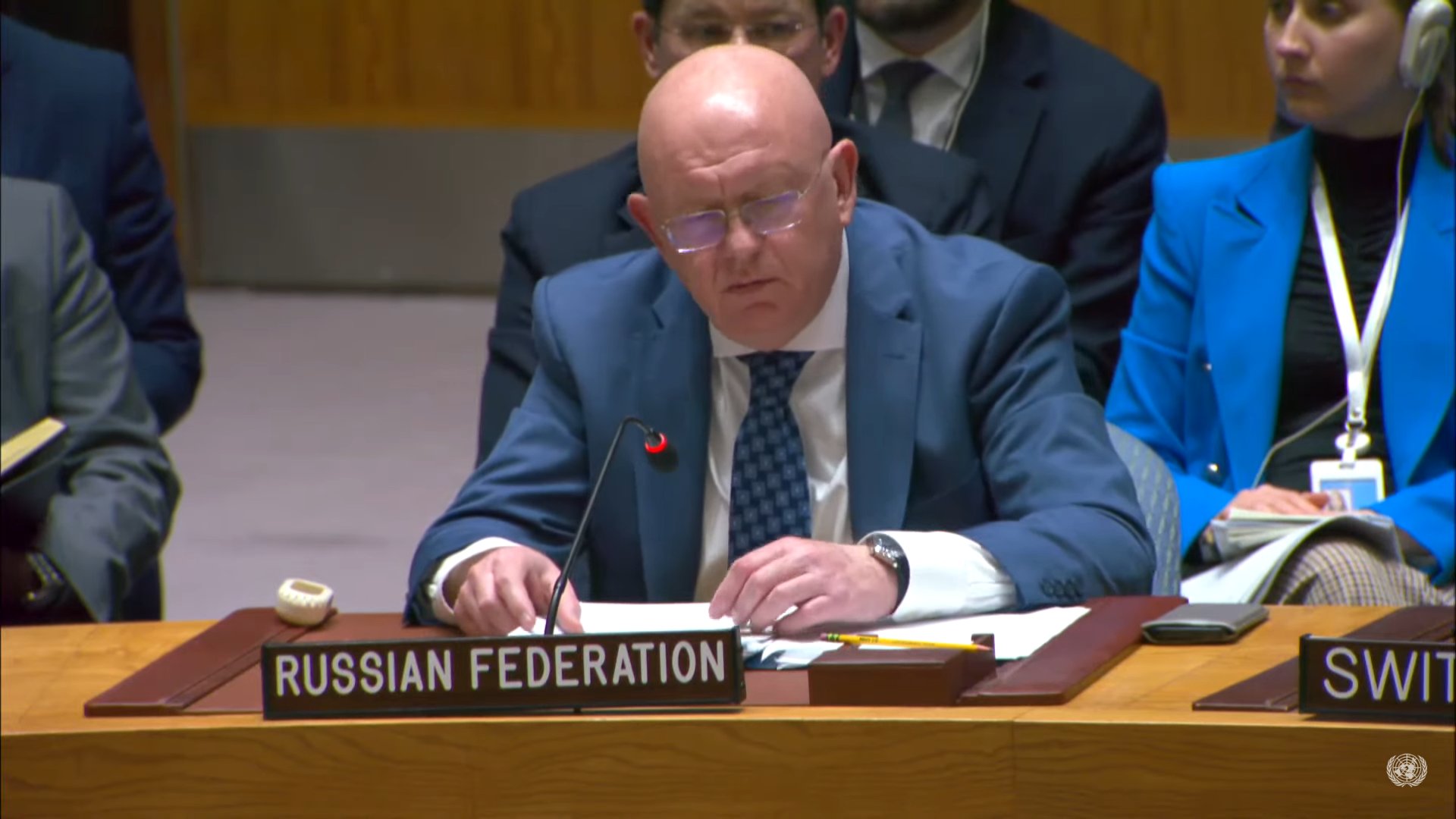A vote is set for Friday on an Arab-state-led resolution calling for an immediate ceasefire.
The United Nations Security Council has once again failed to agree on a resolution for a ceasefire to halt the ongoing Israel massacre in Gaza despite a deepening humanitarian catastrophe and a mounting death toll.
The US and UK voted against a Russian draft resolution calling for a humanitarian ceasefire and a withdrawal of Israel’s directive for Gaza’s civilians to relocate south.
The Russian resolution secured only four votes, marking Moscow’s second unsuccessful attempt to pass a move on the crisis this month.
“We regret the fact that the Security Council did not meet the hopes pinned upon it,” said Permanent Representative of Russia to the United Nations Vasily Nebenzya.
It follows a United States resolution that was vetoed by Russia and China for failing to acknowledge the humanitarian crisis in Gaza and for its bold assertion of Israel’s right to self-defence.
The watered-down US resolution called for a mere humanitarian pause, aimed at facilitating aid access, protecting civilians, and disarming Hamas and other armed groups in Gaza.
Last week, the US also vetoed a United Nations Security Council resolution odrafted by Brazil that sought to condemn Hamas for its attack on Israel and called for a temporary ceasefire to allow humanitarian aid into Gaza.
That resolution, drafted by Brazil, gained support from 12 council members while Russia and the United Kingdom abstained from voting.
“Though today’s vote was a setback, we must not be deterred,” US Ambassador to the UN Linda Thomas-Greenfield stated, following the veto from Russia and China. The American proposal garnered support from ten council members, but was opposed by the United Arab Emirates, while Brazil and Mozambique abstained.
Diplomats noted that a humanitarian pause is fundamentally different from a ceasefire, as it may last only a matter of hours, rendering it less effective in mitigating the human suffering on the ground.
“At this moment, ceasefire is not just a diplomatic term. It means the life and death of many civilians,” China’s UN Ambassador Zhang Jun commented, challenging the US initiative for not adequately addressing the crisis.
The need for decisive action was underscored by UAE Ambassador Lana Nusseibeh, who backed the Russian resolution and said the Security Council needed to respond “tangibly” to the deteriorating situation in Gaza.
Malta’s UN Ambassador Vanessa Frazier confirmed that the council’s elected 10 members are currently working on a new draft resolution.
A vote is set for Friday on an Arab-state-led resolution calling for an immediate ceasefire. The General Assembly, unlike the Security Council, allows no vetoes, and while its resolutions are non-binding, they possess considerable political weight.
Since the start of its most brutal military actions to date, Israel has killed at least 6,546 Palestinians, including a minimum of 2,704 children.
Despite the mounting death toll, Israel has faced no restraints and has enjoyed unequivocal support by its Western allies, primarily the United States, which has vetoed multiple UN resolutions calling for an immediate humanitarian ceasefire.
Over the past 20 days, Israeli Occupation Forces (IOF) have targeted hospitals, schools, residential buildings, first responders, and journalists.
On Wednesday evening, Al Jazeera Gaza’s bureau chief Wael Dahdouh,lost his wife, son, daughter, and infant grandson in an Israeli airstrike on Wednesday.







